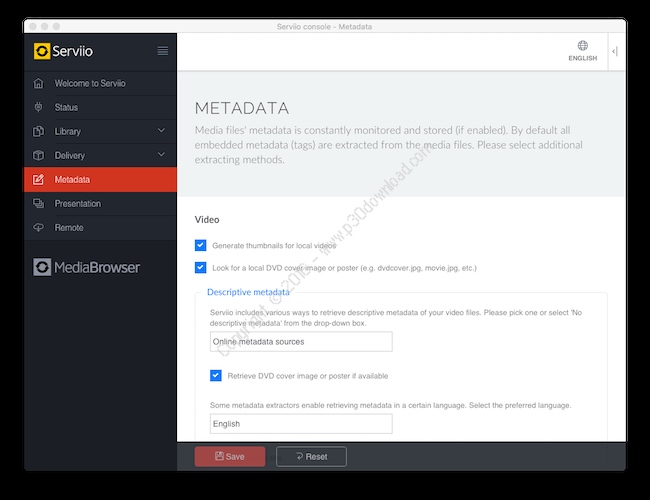

It has been the source of many discussions in the open source community, but it has undoubtedly become the standard. As you surely know, systemd is the new linux init system, now adopted by all the major distributions. To accomplish this task, we must write a small service file.

The first one launches the server while the second the interface to control it.Īt this point, we have all that we need to create the systemd service to launch serviio when the system boots. Now that Serviio is installed, you can observe that two scripts exists inside the /opt/serviio-1.9/bin directory: serviio.sh and serviio-console.sh. The -C option (short for -directory) instructs tar to change directory to the given one, before performing the operations. We are going to extract the content of the tarball inside the /opt directory: obviously you can choose another one, but /opt is conventionally used to host self-contained third party applications.
#SERVIIO MKV DOWNLOAD#
Therefore, we run: wget Īfter the download is finished, we can proceed to the actual Serviio installation. Now that we have installed all the needed packages, we must grab the Serviio tarball: since we are working on a headless machine, we will used wget to accomplish the task.

#SERVIIO MKV INSTALL#
# apt-get update & apt-get install -no-install-recommends openjdk-8-jdk ffmpeg x264 Grab and install Serviio Both of them should work correctly, but in this tutorial we will use the former. There are two versions of the JDK in the Raspbian Stretch repositories: the open source version, released under the GPLv2 license, called OpenJDK, and the commercial, proprietary version from Oracle (the package is actually called oracle-java8-jdk). Serviio is written in java, therefore we must install the java development kit to be able to use it. In this tutorial we will cover the installation of Serviio on a Raspberry Pi running a minimal versions of Raspbian “Stretch”. It is available in two versions: the free one (unfortunately free as in beer), and the “pro” version, which comes with some additional features like remote access. $ – requires given linux commands to be executed as a regular non-privileged user.# – requires given linux commands to be executed with root privileges eitherĭirectly as a root user or by use of sudo command.A Raspberry Pi with a working installation of Raspbian “Stretch”.Install Serviio media service on Raspberry Pi Requirements


 0 kommentar(er)
0 kommentar(er)
